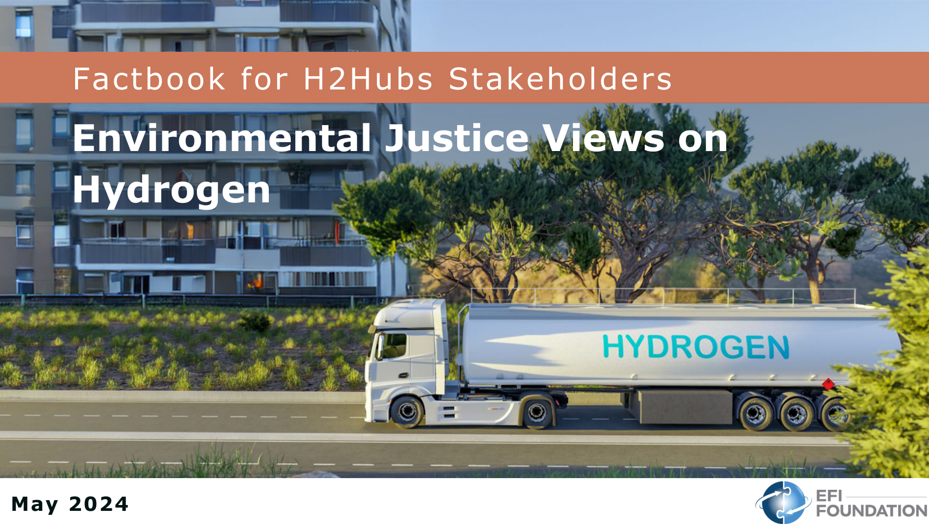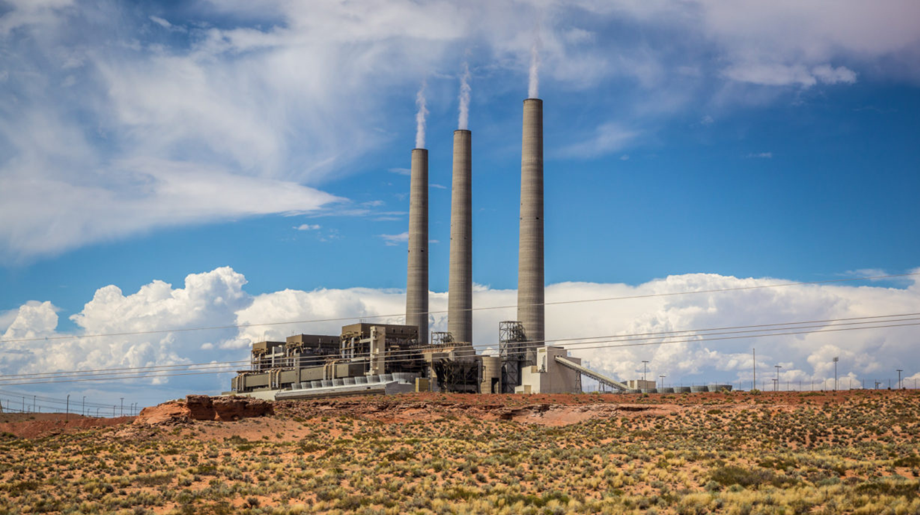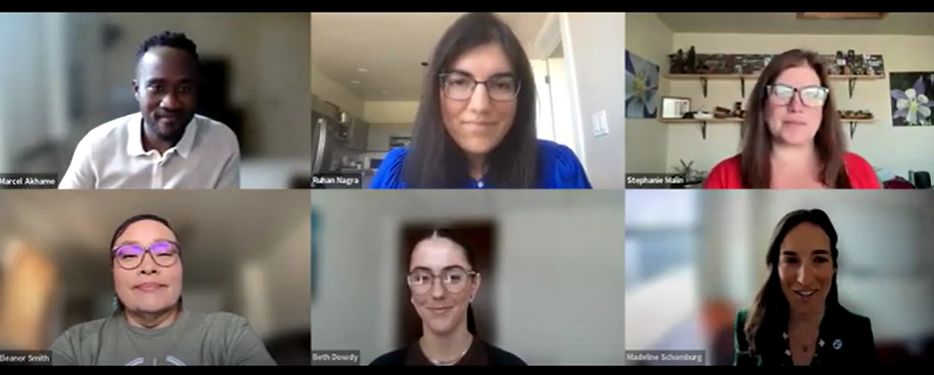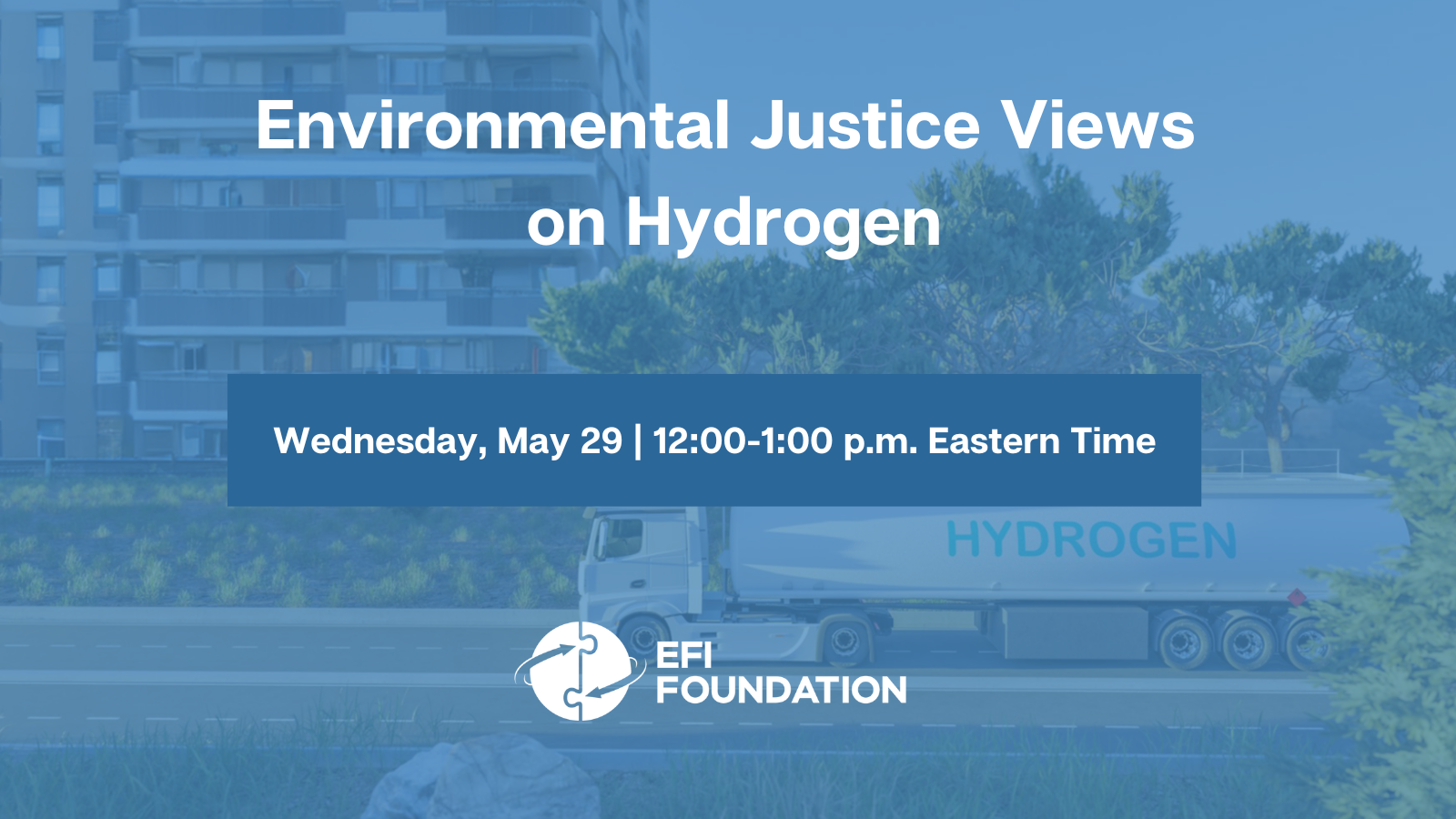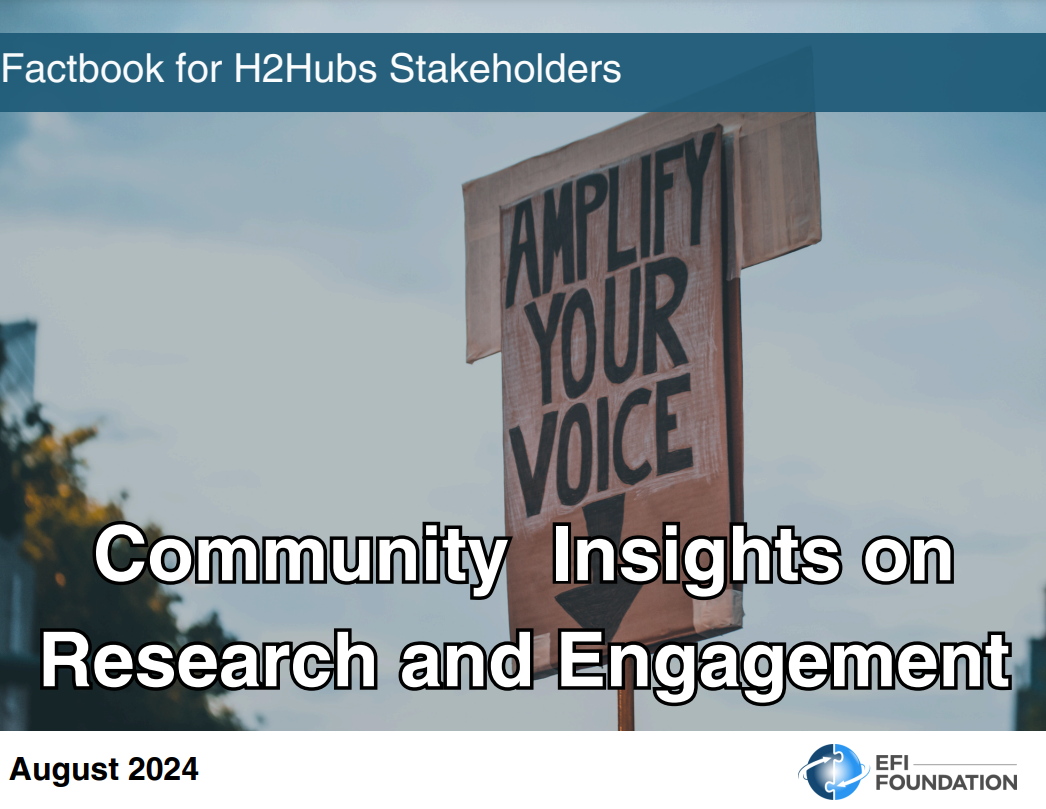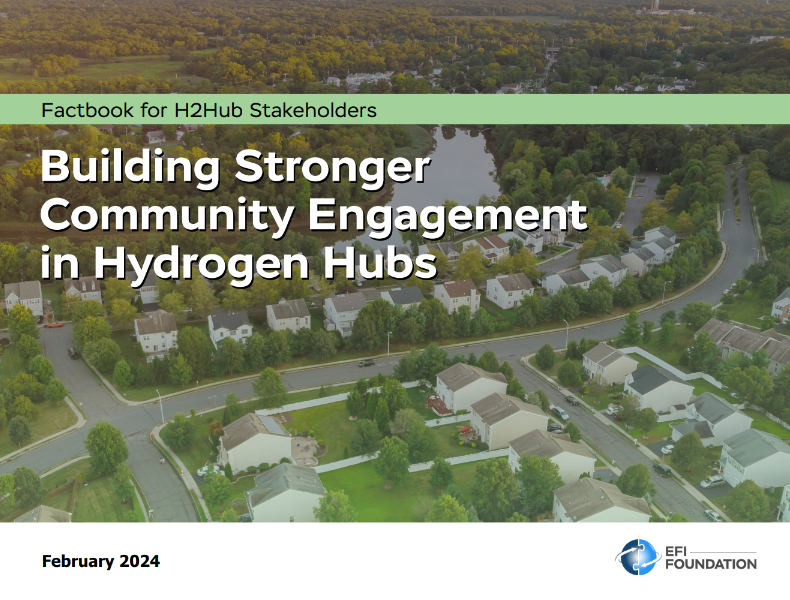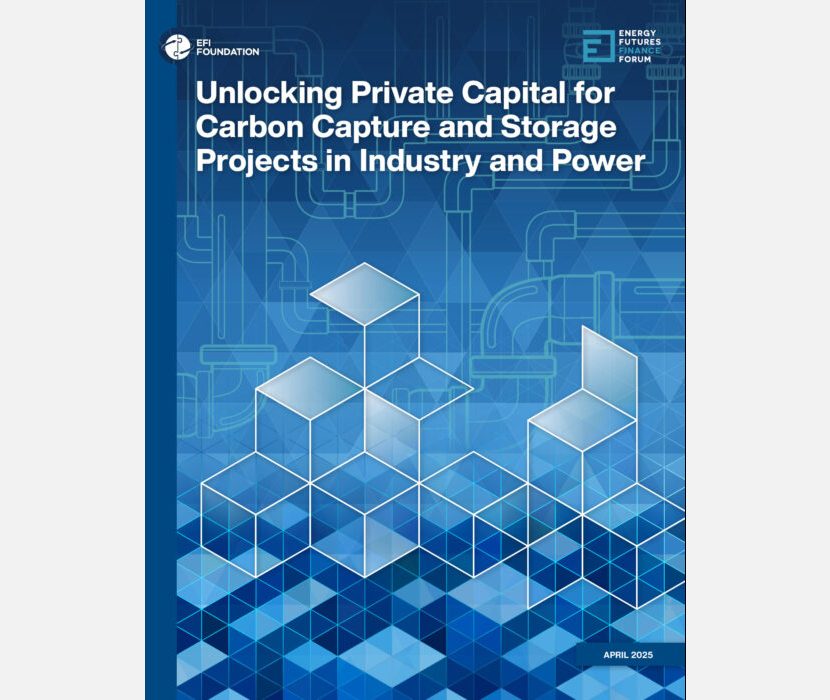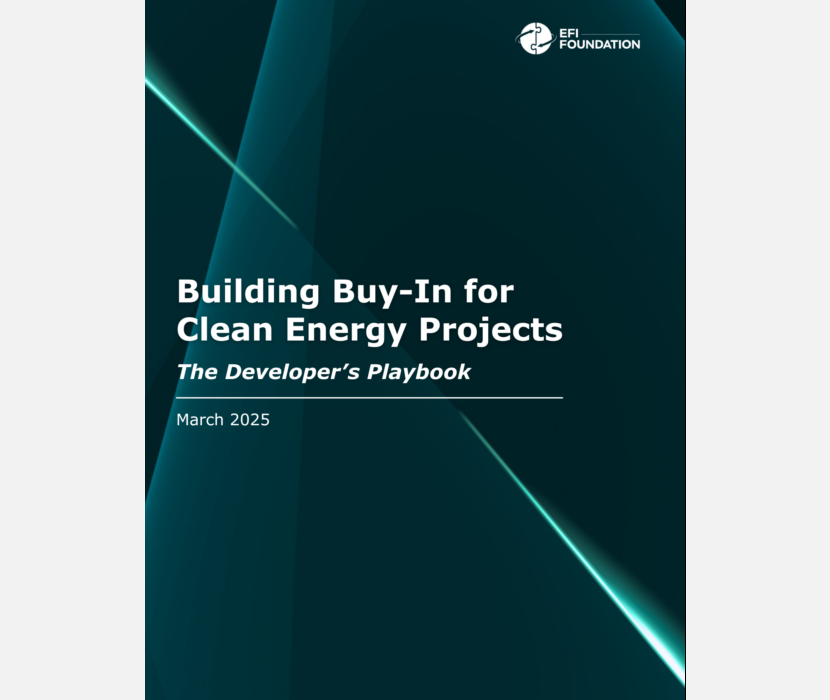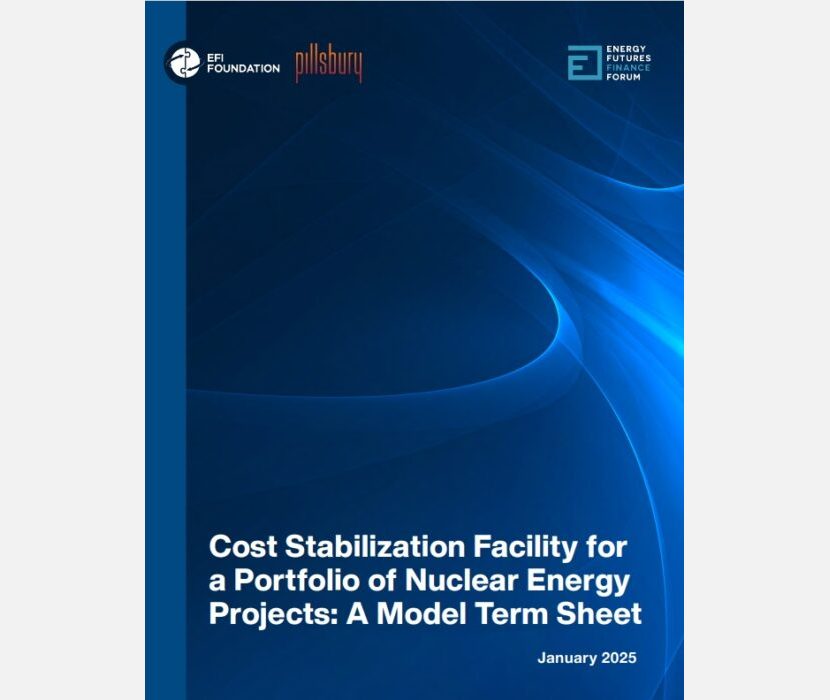Factbook for H2Hub Stakeholders: Environmental Justice Views on Hydrogen (May 2024) presents results of a study by the EFI Foundation (EFIF) on the perspectives of environmental justice (EJ) groups on hydrogen. EFIF gathered data through two surveys—one targeting EJ community members (“EJ members”) and one targeting EJ organizations (“EJ groups”)—as well as public documentation of EJ organizations’ perspectives on hydrogen and community engagement (“EJ letters”). This study builds on our previous research on hydrogen hubs and community engagement, which included results from our survey in the February 2024 factbook, “Building Stronger Community Engagement in Hydrogen Hubs.”
In recent years, the federal government has signaled a strong interest in exploring clean hydrogen as part of the clean energy transition. As evidence of this growing national focus on hydrogen, the U.S. Department of Energy (DOE) launched the Regional Clean Hydrogen Hubs (H2Hubs) demonstration program, allocating $8 billion to create a national clean hydrogen market.
However, hydrogen has become a controversial clean energy pathway in environmental justice communities. More than 140 environmental justice organizations have signed public letters emphasizing hydrogen’s potential to perpetuate the fossil fuel industry, cause safety issues, and contribute to local air pollution.
EFIF offers this factbook to support ongoing conversations among DOE hub developers and partners and communities. Our role in this conversation is that of an information provider. EFIF is continuing to collect data to provide a comprehensive perspective for driving open and honest engagement among all stakeholders. The following are key takeaways from the data collected so far:
- Many EJ groups have written public statements that express concerns about hydrogen. In public discourse, EJ groups tend to focus on the potential risks of hydrogen, not its potential benefits.
- Many EJ groups surveyed, however, expressed support for green hydrogen. A few EJ groups expressed support for both green hydrogen and hydrogen produced from other production pathways.
- EJ groups that support green hydrogen see more potential benefits than EJ groups that do not support any form of hydrogen production, even though all groups share the same concerns. Most EJ groups highlight concerns about dependence on fossil fuels, safety issues, and local air pollution problems. However, those who support green hydrogen also see potential job creation and climate benefits.
- EJ members are generally more positive than EJ groups, and EJ groups attribute the difference in perspectives to varying degrees of familiarity with hydrogen and the prevalence of misinformation. EJ groups largely hypothesized that EJ members showed support for hydrogen in EFIF’s first survey because they did not know enough about it to be concerned.
- Citizen panels and public hearings were identified as two of the top three community engagement methods for both EJ members and EJ groups. EJ groups had working groups as their preferred engagement method, which was sixth on the EJ members’ list. EJ members had document co-creation as their third most preferred engagement method, which was fifth on the EJ groups’ list.
- EJ groups that have engaged with hydrogen hub (H2Hubs) selectees are pessimistic about the benefits of the Community Benefits Plan process. EJ groups did think the CBP process would increase community participation in H2Hubs conversations but did not think it would increase community decision-making authority, create a fairer process, or lead to real benefits for their communities.
The H2Hubs process presents an opportunity to learn from EJ groups and facilitate open dialogues that lead to a more inclusive approach to clean energy development. By working together, H2Hubs can accelerate the transition to a net-zero emissions future while ensuring that the benefits of this transition are shared among all communities.
Supplemental Material
Related Content
(Share this post with others.)


